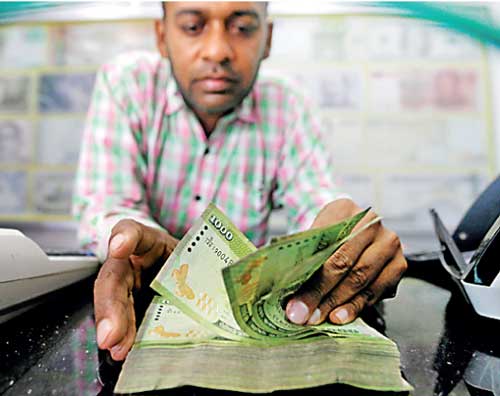Tuesday Feb 24, 2026
Tuesday Feb 24, 2026
Monday, 26 March 2018 00:00 - - {{hitsCtrl.values.hits}}
By Charumini de Silva
Asia Securities predicts 2019 will see faster economic pickup than this year as Government expenditure is likely to increase with a number of consumer-friendly policies coming into play ahead of the 2020 Presidential Election.
Expecting the economy to grow at around 3.9% this year, up from 3.1% in 2017, Asia Securities Research Manager Mangalee Goonetilleke said 2019 would be the year to look forward to.

Making a presentation on Asia Securities’ Wealth Insights Series titled ‘Consumer Sector: Back from a Hiatus; How Will Consumers Spend?’ she pointed out that considering the internal and external economic conditions, there was no room for the Central Bank to loosen its monetary policy.
Predicting that the first half of this year was not going to be as great as everyone thought it would be mainly due to political uncertainty, she nevertheless expressed optimism looking ahead to 2019, noting that the economy would pick up at moderate levels in the backdrop of Government expenditure kicking in, where overall inflation would be driven by non-food inflation.
“The 2019 Budget in November is where you are going to see a whole heap of consumer-friendly policies coming in, just like we saw in 2015,” she said.
Sri Lanka being a consumer-driven economy, where local consumption amounts to about 64%, it was noted that in terms of private consumption, food and non-alcoholic beverages take up 28% followed by transportation, housing, clothing and footwear, healthcare and education.
Goonetilleke said the rural economy, which accounts for about 75% of the total population, has seen the biggest change in the last few years and insisted companies had to watch out for this segment which was in a consumer space.
She insisted it was important to strike a balance in income levels as it would have multiple effects that would result in consumption patterns.
“If you look at 2016-2019, although the exact value is increasing, the allocation as a percentage of expenditure goes into non-food items like consumer durables, clothes, healthcare and education,” she added.
Justifying why they think and how they think the spending is going to start kicking in from this year until 2019, she stated that food inflation would taper down which would then result in a pickup in FMCG where there would be an increase in basket value.
According to her, the basket value shrunk drastically during 2015 and 2016, but it was now going to increase with the modern retail sector also starting to pick up due to food consumption improvement. She also stated that surprisingly the tobacco market would also pick up as a trickledown effect.
She emphasised that following the 2019 Budget, the FMCG non-food and consumer durables sectors would also start to pick up.
“What we see is that there will be another salary hike for government sector workers and that’s where you are going to see a pickup in the consumer durables sector,” she asserted.
Despite the fact that there will be a pickup in consumer durables, she said it would be relatively slower than what was seen in 2015 and 2016, particularly because of the high interest rates and inflation levels which were much lower at that point in time.
“It won’t be as exciting as 2015 and 2016, but you will see a far better growth than in 2017,” she added.
Acknowledging that e-commerce could not be ignored anymore, she said there were a number of players that had entered the market and disrupted sectors, especially the consumer electronics segment.
“In Sri Lanka e-commerce is still around 1% of economic penetration. There is so much potential for e-commerce here. It’s just a little hard to ignore this space anymore,” she stressed.
In terms of equities, Asia Securities said it would bet on companies that are exposed to the mid-income category and companies that source from the local market as Sri Lanka’s exchange rate was highly volatile.
“Cargills, Nestle have a good percentage of their raw materials sourced locally, which have immense margins. The RoE of Nestle is +80. Lion Beer also saw an increase as a result of the recent excise duty revision,” she pointed out.
Goonetilleke said talking to vendors, they had observed that there had been a massive switch between Lion Beer consumption and hard liquor consumption.
Cargills, which is the largest modern retail sector company, has managed to post decent results despite a tough year, mainly because they sourced raw materials locally and did not see a major impact from raw material cost increase compared to other companies that import.